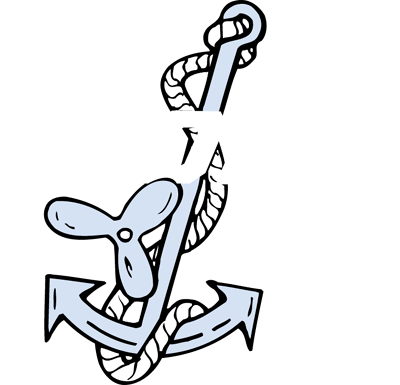Beware Of Coast Guard Investigations – Some May Be More Equal Than Others.
By Bill Hewig
If your mariner client receives word that he or she is to be the subject of a Coast Guard investigation, your first words to the Coast Guard should be: “Is this to be a Part 4 or Part 5 Investigation?” Depending upon the nature of the investigation, the answer to that question could have a significant bearing on your client’s legal rights, and possibly even the outcome of the investigation. You should, therefore, always be sure to clarify ahead of time which part of the Coast Guard’s regulations will govern the Coast Guard’s conduct. Normally, the investigation preceding a license action for negligence, incompetence or misconduct will proceed under 46 CFR. Sec. 5.101 (b) which states, in relevant part: “In order to promote full disclosure and facilitate determination as to the cause of maritime casualties, no admission made by a person during an investigation under this part or part 4 of this title may be used against that person in a proceeding under this part, except for impeachment.” The Coast Guard’s regulations under Part 4 also contain a section discussing investigations, but that section does not expressly state that admissions made during the course of an investigation under Part 4 may not be used against the mariner. See, 46 CFR sec. 4.07-1. For most Part 4 investigations, a parallel statement in the Part 4 regulations would not be necessary because, as noted in the above citation, the scope of Sec. 5.101 (b)’s protection includes investigations not only “under this part” (i.e. – Part 5); but also “ under part 4” (i.e. – investigations under Sec. 4.07-1). Nonetheless, there are some investigations, at least by the Coast Guard’s own interpretations of its regulations, which are not included within the “or under part 4” language. This can be seen in a recent Coast Guard investigation in Oakland, California, where precisely this issue arose.
Walking The Tightrope Without A Net
The mariner was a licensed third mate, who had been logged and fired by the captain of his ship for what appeared to be, and for what the mariner claimed was, a laundry list of trumped-up charges based entirely upon a personality conflict. There was no grounding; no ship or cargo damage; no injury or loss as normally understood by those terms; all that existed was a list of written complaints, most of which occurred on the same day, about offenses such as: failure to timely call the captain for maneuvering at night; failure to get timely permission for course changes; violation of minor parts of the captain’s night orders; failure to use the bridge computer properly to send out weather reports in a timely manner, etc. etc. When the Coast Guard investigating officer received notice of the logging and the firing, he contacted the mariner’s counsel to advise of the investigation, and specifically informed counsel that he intended to conduct the investigation under Part 4, and that the mariner WOULD NOT have the protection of not having his testimony during the investigation used against him. When counsel asked why the “or under part 4” language of 46 CFR sec. 5.101(b) did not apply to this investigation, the investigator stated that it was because there had been no actual “marine casualty” within the meaning of sec. 5.101(b). Why this rather minor distinction might make any sense from a public policy matter is completely obscure; nonetheless, this is a distinction that the Coast Guard does, apparently, still on occasion employ, and attorneys who represent mariners should continue to be vigilant for the Coast Guard’s application of this usage, even though it will, as a practical matter, arise in very few situations. In case you are interested in the outcome of the Oakland case, the mariner of course attended the investigation, testified openly and candidly about all aspects of the logging (with full knowledge that his testimony could be used against him), and presented several letters from prior captains testifying as to his skill and reliability. After hearing all of the evidence, the Coast Guard, apparently impressed by the mariner’s candor, elected not to proceed any further, and closed the matter.
